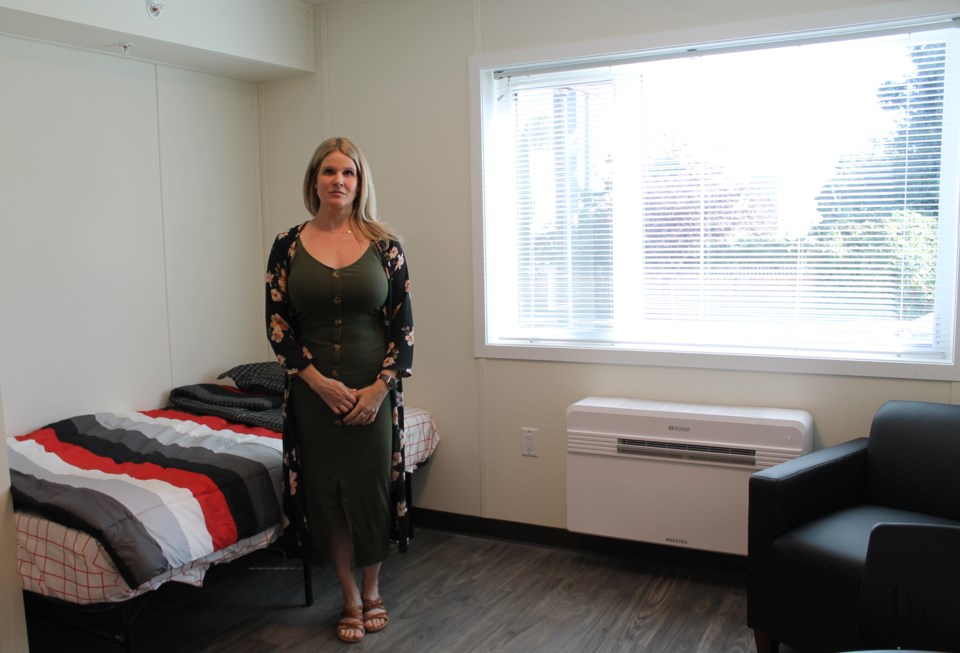Mental health services and programs are an integral part of helping those experiencing or at risk of homelessness, but most of the time it is not the main focus for people, according to Julie Roberts, executive director at Community Builders Group.
Roberts, who is part of a non-profit overseeing Richmond’s newest temporary modular housing (TMH) called Aster Place, said people who have been living on the streets or in shelters for a long period of time are often focused on the “day-to-day basics of survival” rather than health services.
“We recognize that when people come from outside, it might be a long period of time since they’ve sought help for their physical and mental well-being,” said Roberts.
“We find that it takes a while for people when they get (indoors) to focus on more of the basics, like those who don’t have an ID or access to belongings or food sources. Health services are prioritized at the rate that the residents are asking for help.”
Richmond’s TMH offers in-house access to doctors, counsellors, a psych nurse and registered nurse.
She added that support in mental health, physical health, substance use and safe supply are highlighted to residents when they move in to “make sure that they know what’s available.”
“We establish those relationships and have regular check-ins with residents so that they can receive that support or be encouraged to receive the support if they haven’t reached out yet.”
Residents who move into TMH buildings work with staff, Community Builders Group in Richmond’s case, to help residents focus on what areas they want to get support in.
Their needs are first and foremost shelter and food and when their needs “become less emergent,” residents begin to access services that are available, according to Roberts.
Roberts told the Richmond News that the community has seen an “overtaxing on our primary and health services” in the last year.
“Health service in general is overstretched, just given that where we’re at in terms of our medical systems,” she said.
“I don’t think there is a problem with mental health services (being) under-utilized, but it’s whether or not people without homes or in shelters have a chance to focus on them.”
What Roberts is hoping to see is a greater partnership with other options like psychiatry services, which she said is limited for in-house access at the TMH.
“There is a need for more funding for mental health services in the community at large and then getting people connected to them.”



